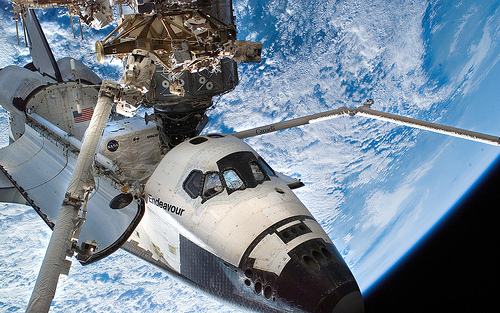|
Space Experiments May Lead to Vaccines  Space shuttle Endeavour. (Buglugs / Flickr) May 16, 2011 | WMFE - The shuttle's crew will be conducting a series of experiments during their time at the International Space Station. They hope the research may one day lead to vaccines to protect against food poisoning and a deadly bacterial infection. Bacteria behave differently in space than they do on Earth. They grow faster. And bigger. They can also become more virulent, making it easier for scientists to identify the disease-causing genes. Researchers can use the information to make new treatments. Austin-based biotech company Astrogenetix has been working with NASA to develop a Salmonella vaccine since 2008. It's now working on another vaccine for MRSA, which kills about 19,000 people in the US each year. "Obviously, MRSA is a very valuable vaccine candidate," Astrogenetix CEO John Porter said. "There are no vaccines for it currently. And in fact, a person who gets infected with MRSA has very limited treatment options." That's because the bacteria have developed resistance to many antibiotics. Porter said he hopes the research in space will help get a MRSA vaccine ready for human clinical trials, here on Earth.
|
|
|